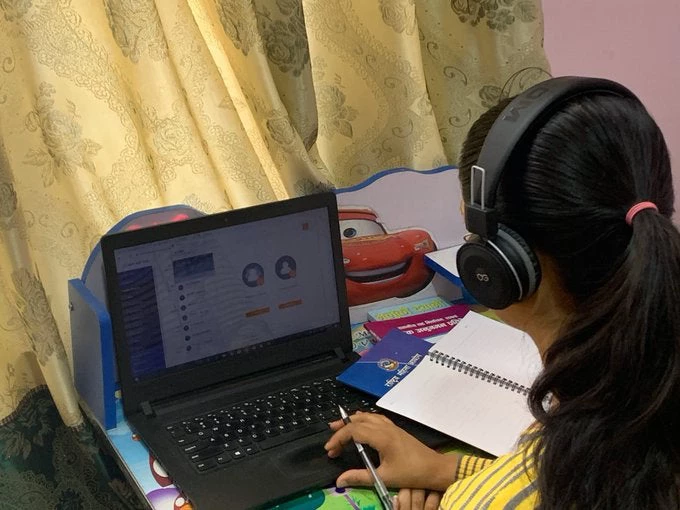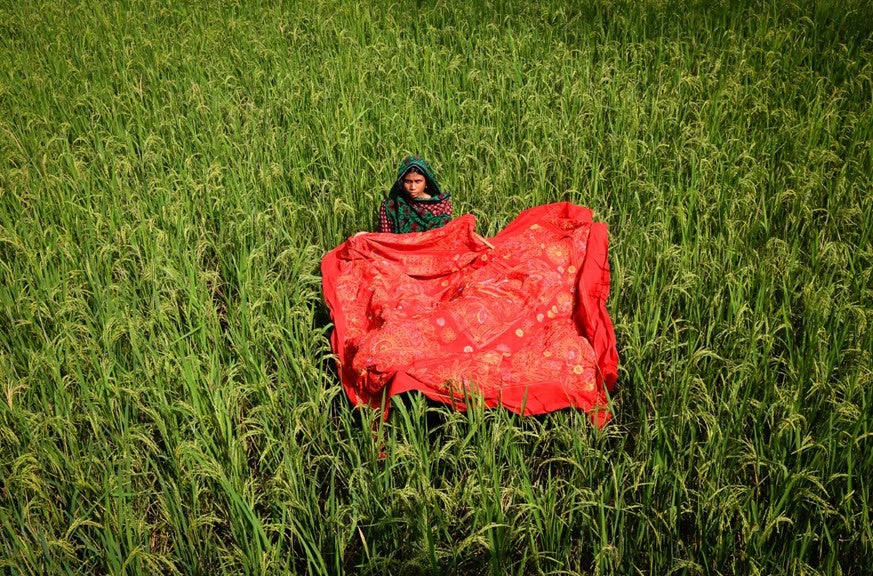 South Asia 2020 Year In Review
South Asia 2020 Year In Review
What is the linkage between climate resilience in Bangladesh, farmers' livelihoods in Bhutan, plastic waste in the Maldives, and a gender violence helpline in Nepal?
As we wrap up this unprecedented year, we reflect on how the region faced the devastating impacts of the COVID-19 pandemic, rose to the challenge to create better development outcomes for its people and prepare for a more resilient future.
1. Protecting South Asia's poor and vulnerable against COVID-19
As the coronavirus spread across South Asia, the poorest and the most vulnerable have been the hardest hit. Too often, poor people face a stark choice: preserving their health or saving their livelihoods.

Many do not have any savings to tap into during rough times. Photo - Md Shanjir Hossain / Shutterstock.com
Lynne Sherburne-Benz, Stefano Paternostro, and Zaineb Majoka from our Human Development team explain why it is imperative that social protection programs, including cash transfers, food vouchers, unemployment benefits, pensions, wage subsidies, be at the forefront of relief and recovery efforts.
2. Afghanistan needs to invest in its people—now more than ever
Today, more Afghans have access to primary healthcare in their neighborhood. The maternal mortality ratio has reduced compared to the past 18 years. The number of children enrolled in schools has increased from 3.8 million in 2003 to 6.3 million by 2017. But Afghanistan still has long ways to go to realize its full human capital potential, especially in health and education.

This blog is part of our #ProtectTheGains series, which highlights programs that have made a real difference toward achieving a more prosperous, inclusive, and peaceful Afghanistan. Henry Kerali, World Bank Country Director for Afghanistan, spotlights why continued international aid, including through the Afghanistan Reconstruction Trust Fund (ARTF), is vital to create better lives for millions of Afghans and sustain development gains.
3. Bangladesh's 50 Years journey to climate resilience
The spirit of Bangladesh, the pulse of the nation, is its story of resilience. Protecting lives, livelihoods, and assets from disasters has been key to Bangladesh's development strategy in the past several decades.
In 1950, Cyclone Bhola—the world's deadliest tropical cyclone on record— devastated the country. Senior Disaster Risk Management Specialist, Swarna Kazi, reflects on how, 50 years on, Bangladesh has become a leader in climate resilience and disaster risk reduction.
4. A path toward greater prosperity for Bhutan's farmers
Over the past decade, Bhutan has made impressive progress in reducing its poverty and boosting its economic growth. However, the agriculture trade deficit has been increasing, and farmers lack adequate access to markets.
Our Bhutan Economist, Tenzin Lhaden, spotlights a new program that helps thousands of smallholder farmers move from subsistence farming to market-driven sustainable agriculture, attracting younger people to return to their villages to work at their farms.
5. Empowering minority women in India: Stories of resilience and hope during the COVID crisis
Read how Sameera from Kerala and Kausar from Hyderabad have supported their families during the pandemic, thanks to the education and training they received through Nai Manzil. The program, which offers school-dropouts from minority communities a second chance to complete their education and learn a marketable skill, has helped over 50,000 women in India , write Marguerite Clarke and Pradyumna Bhattacharjee from our education team.
Below, watch our video on the impact of World Bank-supported COVID-19 response projects in India.
6. Amid COVID-19, ramping up efforts against plastic waste in Sri Lanka and Maldives
Plastic pollution is choking the once pristine coastlines in Maldives and Sri Lanka, endangering the fragile flora and fauna of the sea and impacting the lives and livelihoods of those who depend on it for survival. The COVID-19 pandemic will only exacerbate the problem with the increased use of single-use plastic.
especially as they strive to recover from the COVID-19 health crisis.
Idah Z. Pswarayi-Riddihough, then Country Director for Maldives, Nepal, and Sri Lanka, highlights the World Bank's initiative to launch a first-of-its-kind project to combat plastic pollution in South Asia's rivers and the seas.
7. In Nepal, a helpline serves as a lifeline for survivors during COVID-19 lockdown
Nepal was one of the first South Asian countries to implement a lockdown to keep people safe in their homes, but it proved just the opposite for many women. With an already high prevalence of gender-based violence, Nepal saw a rise in domestic violence cases during the COVID-19 lockdown.

This blog by Jaya Sharma, Senior Social Development Specialist, spotlights Khabar Garaun (Inform Us) a 24-hour helpline run by the National Women Commission under the World Bank-supported Integrated Platform for Gender Based Violence Prevention and Response project that served as a lifeline for GBV survivors amid the pandemic.
8. Four actions to speed up Pakistan's export recovery in the wake of COVID-19
Pakistan's exports were hit hard by COVID-19. In May, the country recorded a 34 percent drop in merchandise exports from a year ago. This blog by Senior Economist Gonzalo Varela talks about the importance of exports for Pakistan's recovery and how the success of the industrial #MakeInPakistan strategy crucially depends on its complement 'Sell to the World.'
Photo credit: World Customs Organization
This blog was part of the 'Act Now Pakistan' series focusing on ideas, policies, and actions for Pakistan to recover stronger and better as the COVID-19 crisis subsides.
9. Sri Lanka: 3 ways to ensure women benefit from water and sanitation services
To ensure that the Sri Lanka Water Supply and Sanitation Improvement Project was inclusive, we listened to the voices of diverse women, especially those in the estate sector where poverty rates are high, and access to water supply and sanitation is low. Aroha Bahuguna, Water Supply and Sanitation Specialist, writes about three clear areas the project sought to address.
10. Road safety matters, more so during COVID-19
COVID-19 and road safety have a common unfortunate characteristic – they hit the most vulnerable people the hardest. Hartwig Schafer, World Bank Vice President for South Asia, writes why COVID-19 has been a wake-up call to rethink the future of transport and road safety.
This blog is a part of our campaign Together for Road Safety in South Asia. Find out why road safety is a critical development priority for the region and how we are working with our partners to halve road crash deaths by 2030.
What topics would you like to read more about? Let us know in the comments below!







Join the Conversation